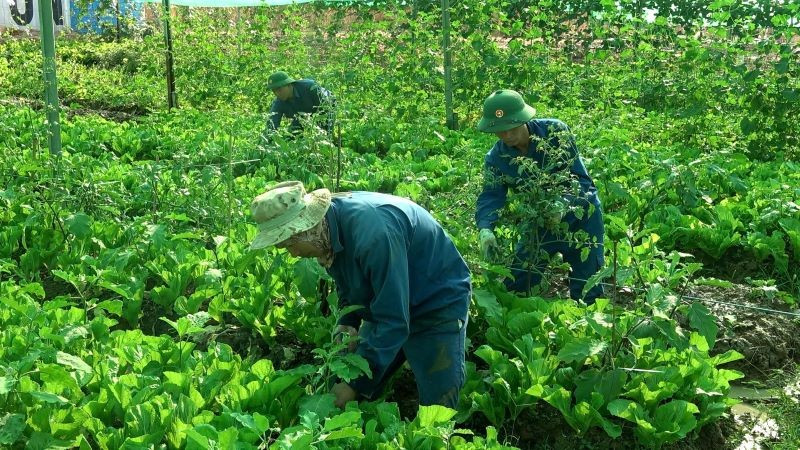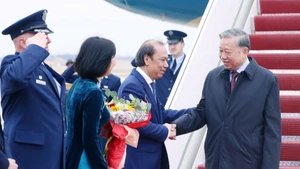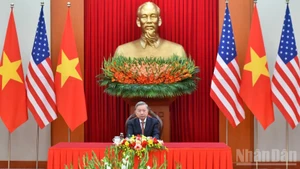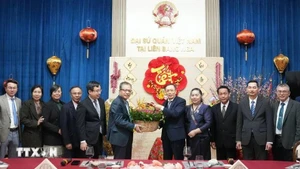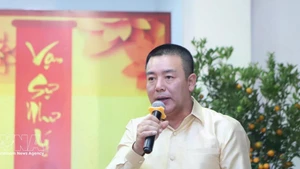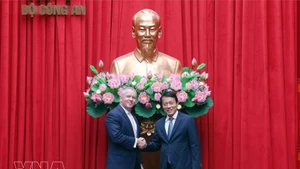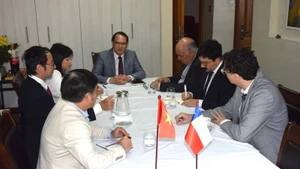Nevertheless, through determination and innovation, the Vietnamese military engineers have overcome all obstacles, transforming the impossible into the possible, creating flourishing vegetable gardens in the heart of Africa’s arid basin and providing fresh vegetables for the peacekeepers.
Upon arriving in Abyei for their peacekeeping mission, Vietnam’s Engineering Unit Rotation 3 recognised that increasing food production would not only improve their meals but also enhance morale and strengthen the health of the soldiers. However, cultivation proved challenging due to the harsh weather and infertile soil.
Refusing to surrender to these difficulties, the Vietnamese military engineers implemented various creative solutions to adapt. Initially, the unit’s officers and personnel brought seeds from Vietnam, particularly drought-resistant varieties such as water spinach, Malabar spinach, leaf mustard, tomatoes, pumpkin, courgettes, and loofah. They also actively reorganised the cultivation area, utilising treated wastewater and applying technical measures to improve crop yields.
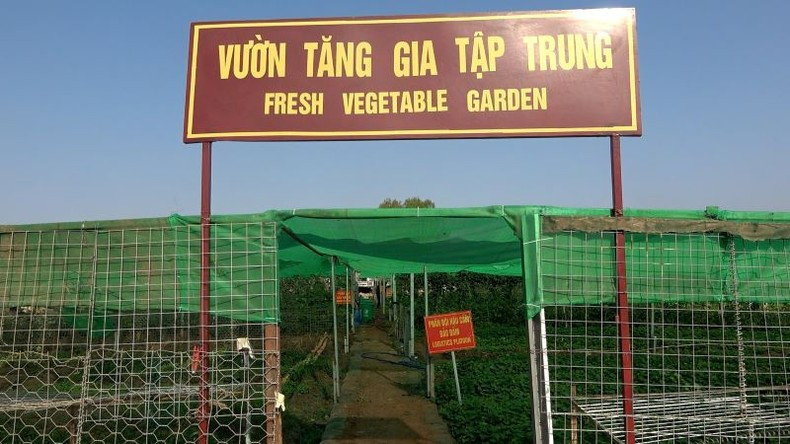 |
| The vegetable garden of Engineering Unit Rotation 3. |
To combat the intense sun, they constructed shelters to protect crops from direct sunlight. The barren soil was improved by collecting and soaking chopped vegetation, utilising organic kitchen waste as green fertiliser, and gathering local livestock manure to enhance fertility.
Furthermore, rather than using chemical pesticides, the Vietnamese military engineers created their own natural pest control solutions. Orange peel, chillies, onions and garlic were ground and diluted to repel insects, protecting the crops in an environmentally friendly manner.
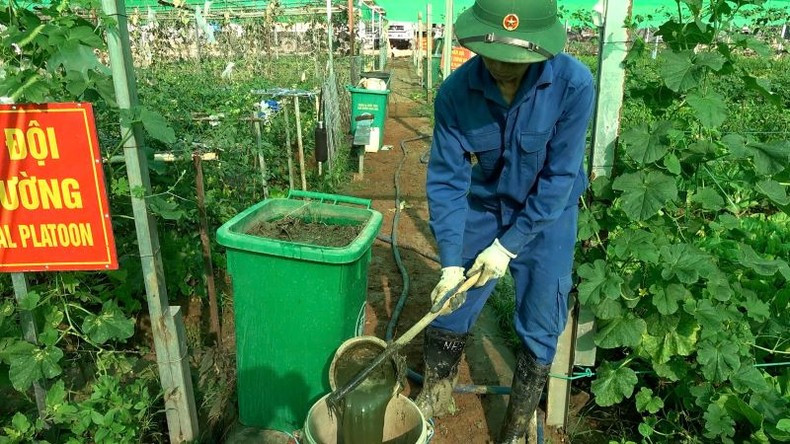 |
| The unit’s officers and personnel improve soil quality by collecting and soaking chopped vegetation, utilising organic kitchen waste as green fertiliser to enhance fertility. |
Captain Tran Ngoc Son, who is directly responsible for tending the garden, shared: “The soil here is primarily nutrient-poor clay mud, which becomes waterlogged when it rains and rock-hard when dry, severely hampering plant growth. To overcome these issues, we installed a shelter system to minimise direct exposure to rain and sun, while we collected and soaked soft-stemmed plants, chopping them up and mixing them with the soil to improve texture and nutrient content. During the dry season, when vegetation withers and yellows, harmful insects such as fruit flies, stink bugs and beetles, having no refuge, concentrate on damaging fruit crops right after pollination. For protection, besides spraying, we’ve had to install additional protective netting and use plastic bags as covers.”
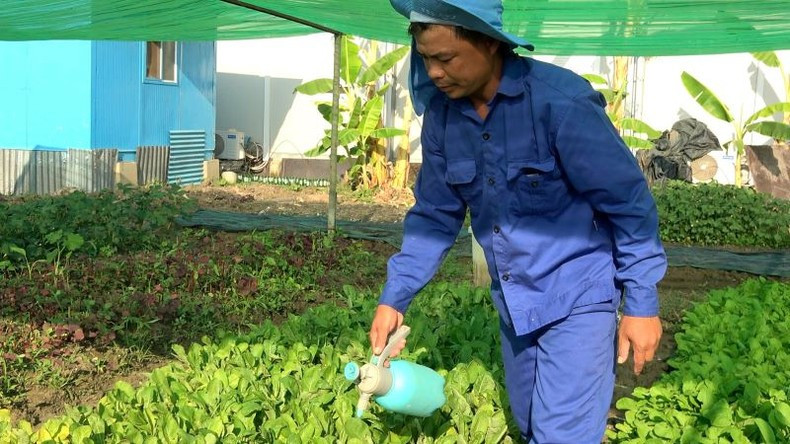 |
| The Vietnamese military engineers create natural pesticides from ingredients such as orange peel, chillies, onions and garlic, ground and diluted to repel insects, protecting crops in an environmentally friendly manner. |
Furthermore, to conserve water, the military engineers implemented crop rotation and intercropping systems to optimise the growing area. Short-growth-cycle plants were interspersed with longer-term crops, increasing yields whilst protecting plants from pests and diseases.
Notable examples include leaf mustard, Malabar spinach, water spinach, gourds, loofah, courgettes, and various beans chosen for their drought resistance. Growing beneath the canopy of longer-term plants are herbs such as dill, long coriander, coriander, and basil.
All harvested vegetables have helped improve and enhance meal quality, reducing dependence on imported foodstuffs. Moreover, the increased production has fostered discipline, work ethic and unit cohesion, providing officers and personnel with additional motivation to fulfil their noble international mission.
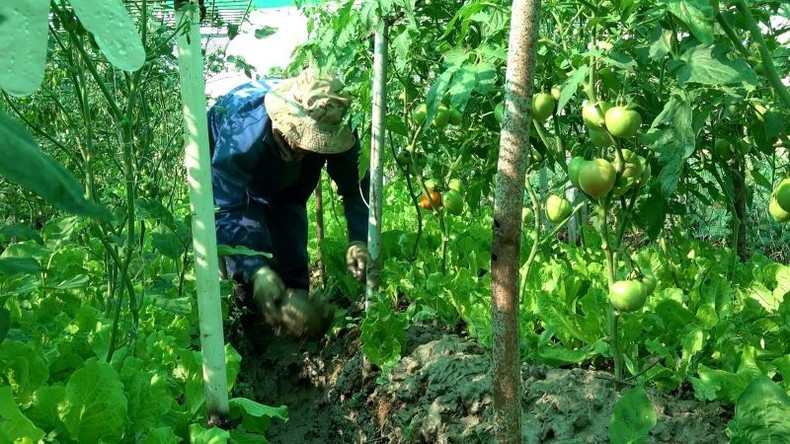 |
| The officers and personnel of Engineering Unit Rotation 3 implement crop rotation and intercropping systems to optimise the growing area. |
Through persistence and innovation, the agricultural work at Highway Base has achieved impressive results, gradually becoming an exemplary model, creating green spaces amidst Abyei’s harsh arid landscape.
The story of these thriving vegetable gardens maintained by Vietnamese military engineers in this unforgiving region serves as a vivid testament to the Vietnamese soldiers’ resilience and innovative spirit.
Not only have they fulfilled their peacekeeping duties, but they have also brought greenery and life to a land previously thought impossible to cultivate, while spreading the positive image of “Uncle Ho’s soldiers” — who, regardless of location or circumstances, remain steadfast and creative in overcoming challenges.
